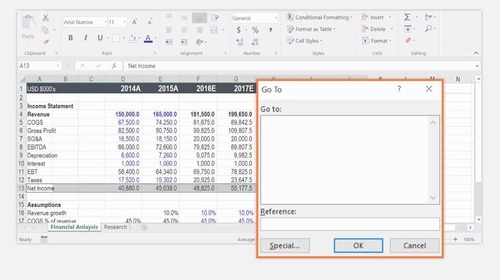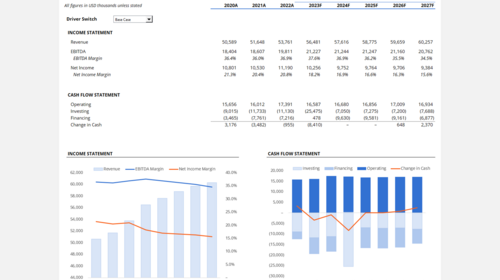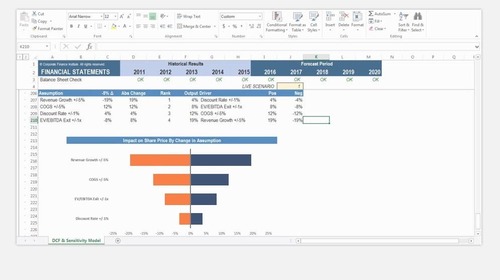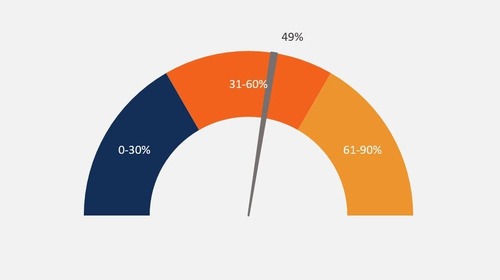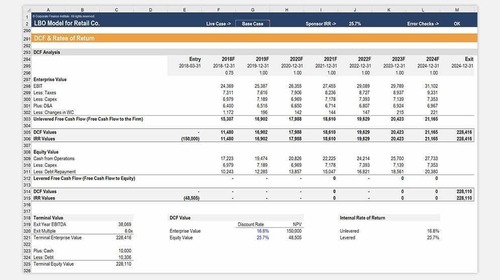- What is a Chartered Financial Analyst?
- What Does a CFA Charterholder Typically Do?
- How Does a Candidate Obtain the CFA Charter?
- What Does the CFA Curriculum Cover?
- CFA Exam Structure
- How Does a Candidate Prepare for the CFA Exam?
- How Much Do the CFA Exams Cost?
- Advantages and Disadvantages of the Chartered Financial Analyst Designation
- Who Needs a CFA Charter?
- Is There a Required Degree To Be a CFA?
- What Is the Difference Between a CFA and a CPA?
- CFA vs CFP
Chartered Financial Analyst
The CFA, or chartered financial analyst, program is one of the most rigorous designations a financial professional can obtain
What is a Chartered Financial Analyst?
A Chartered Financial Analyst (CFA) charterholder is considered a highly distinguished professional in the world of finance and possesses a deep understanding of investment management and financial analysis.
The CFA charter is considered a gold standard in many industries, the most prevalent being the asset management industry, as well as research and business valuation. Nevertheless, there are over 190,000 active charterholders across the world.
CFA charterholders are experts in valuing securities, managing portfolios and making informed investment decisions. However, to become a CFA charterholder one has to pass three levels of exams, as well as demonstrate applicable work history.
CFA charterholders are typically employed by a wide range of institutions, including banks, investment firms, corporations and asset management companies.
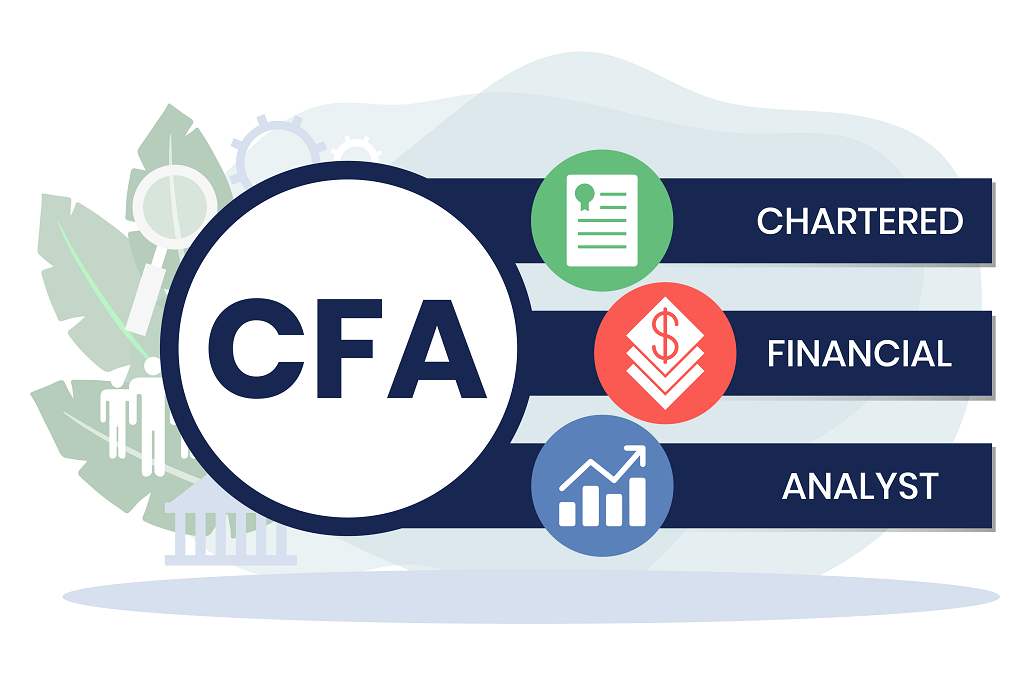
Key Highlights
- Becoming a Chartered Financial Analyst charterholder is one of the most prestigious designations that a finance professional can obtain.
- The 3 CFA exams are notoriously difficult and can take hundreds of hours of prep time for just one of them.
- Obtaining the CFA charter demonstrates a certain level of intelligence and a strong work ethic given the length and time to prepare.
What Does a CFA Charterholder Typically Do?
CFA charterholders are most commonly found in the investment management industry. Charterholders are skilled in evaluating different investments, from stocks and bonds to more exotic investments like derivatives and alternative investments.
Charterholders help determine the proper asset allocation of an investment fund to maximize return while minimizing risk. However, you will also find CFA charterholders in other areas like valuation, trading, research, treasury and risk management.
Typically, a charterholder is responsible for analyzing financial information to determine opportunities and risks in the market. CFA charterholder must also keep an eye on economic developments and company performance, using their expertise to predict how these developments might impact investments.
How Does a Candidate Obtain the CFA Charter?
The CFA Institute, a global association of investment professionals, administers the CFA exam and approves charterholders. The CFA exam consists of three levels, and on average candidates spend 300 hours preparing for each level; it takes the average candidate four years to complete all three levels.
To earn the charter, a candidate must pass all three exam levels and demonstrate four years of appropriate work experience. The candidate’s work experience must be involved in the “investment decision-making process” to qualify.
Additionally, the candidate must have a bachelor’s degree (in any subject) or take the Level 1 exam within 23 months of graduating with a bachelor’s degree (or equivalent). A candidate must be within 11 months of graduation to take Level 2, while a Level 3 candidate must have a bachelor’s degree.
Finally, the CFA Institute requires 4,000 hours of work experience and/or higher education acquired over a minimum of three consecutive years before registering for the Level 1 exam.
Once a candidate passes all three exam levels, they will apply for the CFA charter. As part of this process, the candidate must demonstrate four years of experience in the investment decision-making process as well as submit several letters of reference.
The candidate must also complete a Professional Conduct Statement. A CFA charterholder must attest to and follow the CFA Institute’s code of ethics. Violations of this code may result in the charterholder’s suspension from the CFA Institute.
What Does the CFA Curriculum Cover?
The main focus of the CFA curriculum is on portfolio management and investment analysis.
As part of that, candidates are required to study the following topics:
- Professional Ethics
- Statistics
- Economics
- Accounting and Financial Statement Analysis
- Valuation
- Portfolio Management
- Asset Allocation
- Equity Investments
- Fixed Income
- Derivatives
- Alternative Investments (e.g., Hedge Funds, Private Equity, Real Estate)
- Performance Attribution
The breadth of the material is designed to give investment management professionals a full range of investment tools with which to perform their duties.
CFA Exam Structure
The Level 1 exam is multiple choice and is split between two 135-minute sessions. The exam is administered four times a year. Per the CFA Institute, the 10-year average pass rate for the Level 1 exam is 41%. Candidates may use an approved financial calculator, but laptops are forbidden.
The Level 2 exam is over four hours long, split into two sessions and consists of vignette-supported multiple-choice questions. Each vignette includes a brief scenario followed by six multiple-choice questions. The exam is offered three times a year. The 10-year average pass rate is 45%.
The Level 3 exam is also over four hours (between the two sessions) and the questions are both vignette-supported essay questions and vignette-supported multiple-choice questions. The focus of Level 3 is applying a candidate’s accumulated knowledge to construct effective investment portfolios. A candidate must construct a response (or essay) given a specific fact pattern. This makes the Level 3 exam quite different from the previous levels.
The essay/response questions help ensure a candidate can communicate investment insights clearly while also demonstrating the ability to analyze complex scenarios. The Level 3 exam is offered twice a year. The 10-year average pass rate is 52%.
Practical Skills Module
The CFA Institute is rolling out a Practical Skills Module that must be completed at each exam level in order for a candidate to receive the results of their exam. These modules are designed to cover practical and relevant skills to better replicate the day-to-day application of the exam material. Examples include 3-Statement Modeling and Python Fundamentals.
At each level, the curriculum gets deeper and deeper. The Level 1 exam covers foundational essentials, including ethics, economics and financial reporting.
Level 2 goes even deeper, covering valuation, equity and fixed income investments, as well as derivatives. At this level, a CFA candidate is starting to be asked how to analyze and strategize an investment plan.
Level 3 tends to focus more on portfolio management and wealth planning. This exam uses real-world vignettes, and the candidate must suggest an appropriate investment management strategy and why.
The CFA curriculum also places a strong emphasis on ethics and professional conduct.
How Does a Candidate Prepare for the CFA Exam?
Preparing for the Chartered Financial Analyst CFA exam is like training for a marathon. It’s a long road to the finish line. However, below are some exam preparation ideas:
- Understand the exam format, the types of questions on the exam and the weighting of topics.
- It’s also helpful to create a study schedule. This will help a candidate stay on track given the sheer amount of covered material. Aim for regular study sessions rather than cramming at the end.
- The CFA Institute provides candidates with study materials. These materials can be supplemented using reputable third-party study resources, like review guides and practice exams.
- Practice, practice, practice. Take as many practice questions and mock exams as possible. Not only does this reinforce a candidate’s understanding of the material but it also acts as a “preview” to the actual exam.
- Don’t overlook the ethics material. Ethics is a significant portion of each exam level, so a candidate should thoroughly understand the CFA Institute’s Code of Ethics and Standards of Professional Conduct.
- A candidate may also want to join a study group or utilize online forums. Discussing concepts with peers may provide a different perspective and enhance overall understanding of the material.
How Much Do the CFA Exams Cost?
The cost of the CFA exams varies depending on when you register. Early registrants get a discount, so registering well in advance can save money. As of this writing, early registration is $900, while regular registration is $1,200. There is also a one-time enrollment fee of $350. However, these costs can change, so it’s best to check the CFA Institute official website for the most up-to-date pricing.
While the CFA Institute sends candidates the study materials, some candidates opt to use third-party exam preparation material, which would be an added cost.
Additionally, there is the opportunity cost to committing to the program, with candidates averaging 300 hours preparing for each exam level.
While the costs might seem substantial, a CFA candidate is essentially investing in their future. Earning the CFA charter can significantly enhance a candidate’s earnings potential and open doors to better job opportunities. While reliable data is hard to come by, some analysts think having a CFA charter can result in a 50% increase in salary, even after controlling for work experience!
Advantages and Disadvantages of the Chartered Financial Analyst Designation
Advantages
- The CFA charter is highly regarded and internationally recognized as one of the most challenging certifications a financial professional can possess. It is practically a requirement for many jobs in asset management and sell-side research.
Obtaining the CFA charter demonstrates a certain level of intelligence and a strong work ethic given the length and time to prepare. The CFA stands out from other finance designations because the pass rates are low, and the amount of material covered is both vast and deep.
- While it’s certainly not cheap, the CFA program costs less than obtaining an MBA and is more finance-specific and technically focused. The prestige of having the CFA charter is homogeneous, as there is only one standard, unlike different business schools.
- Even though it usually takes several years to obtain a CFA charter, it can be accomplished while working full time.
Disadvantages
- As discussed earlier, undertaking the CFA is a huge time commitment, with candidates typically spending 300 hours preparing for each exam level.
- The exams are notoriously difficult. As of May 2023, over 2.1 million candidates have attempted the Level 1 exam. A little over 300,000 candidates ended up passing Level 3 (implying a 14% pass rate for all three levels).
- Despite the prestige of becoming a CFA charterholder, there is no guarantee that it will help someone advance in their career, nor does it magically turn an investment professional into a world-class investor.
- The curriculum is focused on portfolio management, which may not be relevant for many career paths in corporate finance. Additionally, it is mostly theoretical and, aside from the new Practical Skills Modules, doesn’t use applications such as Excel.
Who Needs a CFA Charter?
The Chartered Financial Analyst designation is a valuable asset for anyone in the finance industry. Even if a charterholder does not go into investment management, just obtaining the charter shows employers that the candidate is intelligent, ethical and possesses a tremendous work ethic.
Is There a Required Degree To Be a CFA?
No specific degree is required to become a Chartered Financial Analyst charterholder. Whether a candidate has a degree in finance or liberal arts, they can still pursue the CFA designation.
While a specific degree isn’t mandatory, having a background in a related field might provide a candidate with a head start. However, the CFA program is rigorous and comprehensive, so it will equip a candidate with the necessary knowledge to succeed in the finance industry.
What Is the Difference Between a CFA and a CPA?
The Chartered Financial Analyst designation should not be confused with the Certified Public Accountant (CPA) certification. The CPA is the designation of legally qualified accountants in many countries around the world. In the US, the CPA exam is administered by the Uniform Certified Public Accountant Examination and requires additional education and work experience in order to obtain the designation.
In countries outside the U.S., accounting designations of an equivalent standard include Chartered Accountant (CA), Chartered Certified Accountant (ACCA), Chartered Professional Accountant (CPA), Certified Practicing Accountant (CPA) and Certified Management Accountant (CMA).
CPAs commonly work at accounting firms and focus on auditing company filings, structuring and preparing tax returns, as well as working on asset valuation. CPAs also work for corporations in financial reporting and financial planning and analysis (FP&A).
Bottom line: while both CFA charterholders and CPAs operate in the financial industry, their focus and expertise differ. Charterholders study the intricacies of investment analysis and portfolio management, while CPAs focus on accounting, auditing and tax.
CFA vs CFP
The Chartered Financial Analyst designation should also not be confused with the Certified Financial Planner (CFP) certification. The CFP is for professionals who advise people on managing their personal portfolio and investment management.
CFPs advise people on many areas, such as investment management, estate and retirement planning, tax planning, personal cash flows and insurance. This differs from a CFA charterholder in that the CFA program is focused more on investment analysis versus financial planning for individual investors.
While there is some overlap between the two designations, the CFP is really only found in financial planning and wealth management roles, whereas CFA charterholders may be found in investment banking, private equity and portfolio management.
Related Articles
Create a free account to unlock this Template
Access and download collection of free Templates to help power your productivity and performance.
Already have an account? Log in
Supercharge your skills with Premium Templates
Take your learning and productivity to the next level with our Premium Templates.
Upgrading to a paid membership gives you access to our extensive collection of plug-and-play Templates designed to power your performance—as well as CFI's full course catalog and accredited Certification Programs.
Already have a Self-Study or Full-Immersion membership? Log in
Access Exclusive Templates
Gain unlimited access to more than 250 productivity Templates, CFI's full course catalog and accredited Certification Programs, hundreds of resources, expert reviews and support, the chance to work with real-world finance and research tools, and more.
Already have a Full-Immersion membership? Log in
